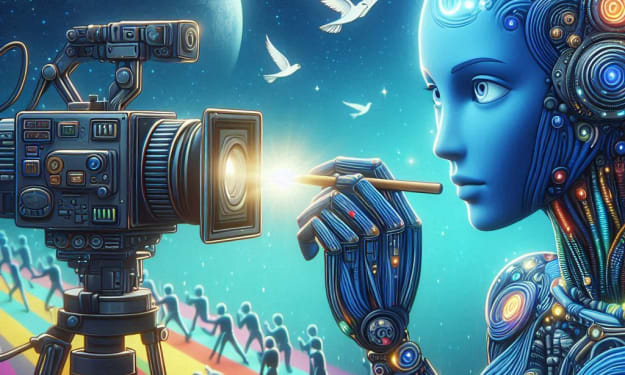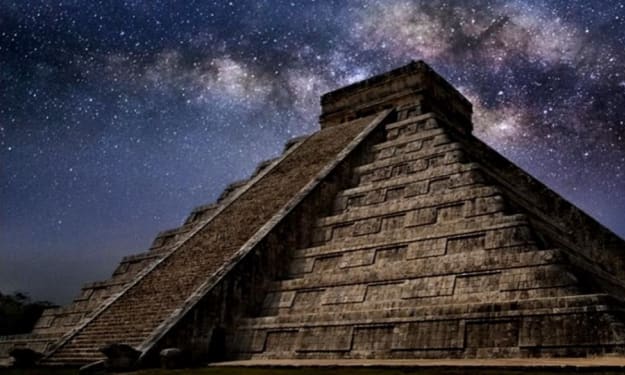Unlocking the Minds of History's Most Influential Figures: Their Legacies and Impact on the Modern World
Exploring the Lives and Contributions of Visionaries Who Shaped Global History

"Explore the lives and legacies of history’s game-changers."
"Dive into the stories of visionaries who shaped our world."
"Discover how their actions resonate in modern times."
In the annals of human civilization, certain individuals stand out not just for their achievements, but for their profound influence on shaping the course of history. From conquerors who expanded empires to scientists who unlocked the secrets of the universe, and from artists who captured the human spirit to leaders who championed social change, these figures have left indelible marks on our world. This article delves into the lives, legacies, and enduring impacts of some of history’s most influential personalities.
Alexander the Great: Forging Empires and Cultural Exchange
Alexander III of Macedon, famously known as Alexander the Great, was born in 356 BC and ascended to the throne at the tender age of 20. His military prowess and strategic genius allowed him to carve out one of the largest empires in ancient history, stretching from Greece to Egypt and into the heart of Asia. Alexander’s conquests not only reshaped political boundaries but also facilitated cultural exchanges that spread Greek language, art, and philosophy throughout the known world. His legacy as a visionary leader who bridged East and West continues to inspire discussions on military strategy, governance, and the diffusion of cultures.
Leonardo da Vinci: Mastering Art, Science, and Engineering
Leonardo da Vinci, born in 1452 in Vinci, Italy, epitomized the Renaissance ideal of the polymath—a person whose expertise spanned multiple disciplines. Best known for iconic works such as the "Mona Lisa" and "The Last Supper," da Vinci’s artistic brilliance transcended mere painting; he explored anatomy, optics, and engineering, envisioning inventions such as flying machines and armored vehicles centuries ahead of their time. His meticulous anatomical studies and scientific observations laid the groundwork for advancements in biology and physics, making him a pivotal figure in the history of art and science.
Marie Curie: Pioneering Radioactivity Research and Nobel Laureate
Marie Curie, born in 1867 in Warsaw, Poland, became one of the most renowned scientists in history for her pioneering research on radioactivity. Alongside her husband Pierre Curie, she discovered the elements polonium and radium, and her work fundamentally changed our understanding of physics and chemistry. Curie’s tireless dedication to science earned her two Nobel Prizes—the first in Physics in 1903, shared with her husband and Henri Becquerel, and the second in Chemistry in 1911 for her discovery of radium and polonium. Her legacy as a trailblazing woman in STEM continues to inspire generations of scientists and advocates for gender equality in academia.
Mahatma Gandhi: The Father of Nonviolent Resistance
Mohandas Karamchand Gandhi, better known as Mahatma Gandhi, emerged as the preeminent leader of India’s independence movement against British colonial rule in the early 20th century. Gandhi’s philosophy of satyagraha, or nonviolent resistance, became a powerful tool for civil disobedience and social change, influencing movements for civil rights and freedom across the globe. Through acts of peaceful protest, fasting, and advocacy for self-reliance, Gandhi galvanized millions to challenge injustice and inequality, ultimately leading to India’s independence in 1947. His principles of nonviolence and human dignity remain relevant in the fight for justice and equality worldwide.
Isaac Newton: Unraveling the Laws of Nature and Modern Physics
Sir Isaac Newton, born in 1643 in Woolsthorpe, England, revolutionized our understanding of the physical universe with his laws of motion and universal gravitation. His groundbreaking work in mathematics and optics laid the foundation for classical mechanics and shaped the scientific method for centuries to come. Newton’s Principia Mathematica, published in 1687, remains one of the most influential scientific texts of all time, elucidating the fundamental principles that govern motion and celestial mechanics. His legacy as a visionary physicist and mathematician continues to inspire scientists and engineers to explore the mysteries of the cosmos.
Christopher Columbus: Discovering the New World and Global Exchange
Christopher Columbus, an Italian explorer sailing under the Spanish crown, embarked on a historic voyage in 1492 that led to the European discovery of the Americas. His transatlantic expeditions initiated an era of exploration, colonization, and cultural exchange between the Old World and the New. While Columbus’s voyages opened new trade routes and expanded European influence, they also sparked centuries of debate over their impact on indigenous populations and the global balance of power. Columbus’s legacy remains a contentious topic, symbolizing both exploration and the consequences of colonialism in world history.
#HistoryMakers #InfluentialFigures #LegacyLeaders #GlobalImpact #HistoricalLegends
About the Creator
Asanga Coorey
"Passionate social worker from Sri Lanka, dedicated to exploring diverse topics that spark my interest and drive change. Join me on a journey of curiosity and positive transformation!"
Enjoyed the story? Support the Creator.
Subscribe for free to receive all their stories in your feed. You could also pledge your support or give them a one-off tip, letting them know you appreciate their work.





Comments
There are no comments for this story
Be the first to respond and start the conversation.